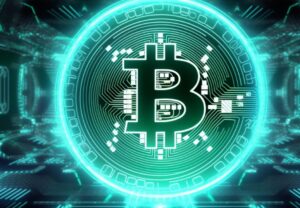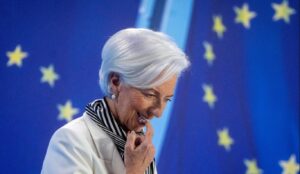Daniel Krawisz: Transaction processors should seek BTC
13 min read [ad_1]
BTC SV dedicated transaction processors have shown interest in offering fiat payments for clients to interact in and with BTC.
However, there are quite a few voices within BTC SV that have stated that accepting fiat instead of satoshis is disadvantageous.
We caught up with Daniel Krawisz to explore the competition of satoshis and fiat money in the BTC network.
Hi, Daniel! In our last interviews, we talked about BTC SV (BSV) in general and speculating in and on BTC.
Today we would like to hear your thoughts on the fact that transaction processors are able to accept fiat money as a payment for transaction fees instead of satoshis (so called 0 sat/byte transaction fee) and even process transactions without moving any satoshis on the blockchain (so called 0 sat transactions).
First of all, this topic has been lively debated within the BTC SV sphere already. I invite you to use this article as a basis for our talk today, as well as this Twitter post from you:
I would be concerned if miners didn’t want to be paid in BSV. The satoshi is what ensures that everybody is invested in each other. That is what ensures that everyone is cooperative. I made that point here: https://t.co/OWnL9oo1mG
— Daniel Krawisz – end mass scams with proof-of-work (@DanielKrawisz) November 8, 2020
Why exactly are you concerned if transaction processors / miners do not want to be paid in BTC SV (BSV)?
Daniel Krawisz: If you don’t think that satoshis are the best money and you don’t want them because that proves that you think that an integral part of BTC is worse than some alternative. Why would BTC succeed if the money part was so broken that people actually working on BTC preferred some alternative? If I was some business man or government official talking to some BTC transaction processor and they didn’t even want BTC I would think “obviously these people don’t really think that BTC actually works so why would I want this BTC as a service?”
Money is about specialization and the division of labor. If you want to be paid in fiat, that means you want to specialize with a different group of people than with the Bitcoiners. Why do you not want to specialize with the Bitcoiners? Bitcoiners are better at it because they have better money. If you do not want to specialize with Bitcoiners, then what are you even doing here? If Bitcoiners are not good for specializing with, then you would not expect the network to be capable of providing a good service and you would not want to build a business on it.
People who want to offer BTC as a service and be paid in fiat look like they understand nothing and are probably running a business that would fail easily and that should be easy to compete with and it looks like they are sending the message to the world that they think Bitcoiners are losers! Maybe this business is actually buying BTC behind-the-scenes and really the people running it don’t think BTC is a failure; however, a much better way of getting bitcoins than buying them from exchanges is telling customers that they must give them to you. This business could be successfully competed with by creating a similar business which pushed the cost of dealing with exchanges on to customers.
In our other interview about BTC and speculation, you said:
People who think that transaction volume will drive up the price of BTC are people who believe the Fisher quantity theory, even if they have never heard of it. (…) In any case, transaction volume is not the cause of value. Rather, value is the cause of transaction volume. (…) Trying to drive up transaction volume does not necessarily do anything good unless you are a miner earning transaction fees. It does not mean that BTC is going up. Of course, you would want to earn BTC so you want to drive up transaction volume because of that but in that case you don’t care about transaction volume. You just care about what you earned.
Now that is interesting. Is it not all about being profitable? Be it in fiat, BTC or anything?
Daniel Krawisz: The definition of profit depends on the definition of money. The way you use money is
- Start with money
- Spend money to make more money
- Go back into money
There is a cycle. Money is safety and entrepreneurship is risk. With money, you go through a cycle of risk and reward. If you end up with more, then you have profited and if you end up with less, you have loss.
A question we may ask here is, more of what? Many goods can be used as money. Something which would have got you more of one good is not necessarily something that would have got you more of a different good. If you had been trying to run a BTC business over the last 10 years, there would be many instances in which you could have made a big profit in dollars that would be a loss in terms of satoshis, and vice versa.
This is what I mean when I say that the definition of profit depends on the definition of money. “Profit or loss” just means “more or less money”. In the real world, we do not know if you have more or less until we know what money is. Right now, in the real world, there is more than one type of money. There are many competing proto-monies. Thus we do not truly know who has more and who has less.
Thus, when you say “is it not all about being profitable? Be it fiat, BTC, or anything?” I would say that there is a big difference between profiting in fiat vs BTC and understanding this difference is a key to forming strategies concerning BTC’s success, so we can’t just ignore it.
Now, as to the quote that you showed me, this quote merely says that transaction volume does not drive up the price of BTC. Rather, prices and transaction volume are caused by the same thing, which is called value.
Value is the expected benefit that derives from a good. Prices are caused by people’s beliefs about value, ie what they believe about expected value. Transaction volume is also caused by value because value is a motivator to try to get more Bitcoins.
If you say “transaction volume drives up prices” you are effectively saying that two things are economically related by forgetting about the part that involves human motivation. Therefore, you are not really thinking realistically about economics at all, you have pretty much removed the main thing about it.
What is the value of money? In the Austrian theory, the value of money has to do with the fact that you do not know everything that is happening in the whole economy. Money is the good which puts you first in line to take advantage of new opportunity. The advantage of holding cash over earning income from stock is that of having the first opportunity to buy a different stock at a cheaper price.
Mises famously said that money is a present good. The ever-present possibility of discovering a better option that you didn’t know about is the reason you need to hold money instead of spending it.
Money can, of course, also be a future good. You would do this if you thought that there would be better opportunities in the future and you were expecting other people to realize this after you and drive up the valuation.
If we want BTC to go up, therefore, we want to ensure that the amount of unknown opportunities is going up. That is not the same as transaction volume, although it does, as I have said, result in transaction volume. It is different because prices are forward-looking. Thus, transaction volume does not drive up price; but rather the price is driven up by people who predict more transaction volume in the future. If people did not believe that there would be any transaction volume tomorrow, then no amount of transaction volume today would drive the price up.
I would say that the Austrian theory implies that every transaction that actually happens makes BTC less valuable because this is the moment that an opportunity is realized. Obviously, I do not believe that transaction volume is bad or evil, as people in BTC have concluded. The reality is that all opportunity is fleeting so we have to constantly create more.
What are the advantages if transaction processors solely accept BTC SV (BSV), the satoshis, as a payment for their services?
Daniel Krawisz: The advantage to transaction processors is that they do not have to worry that BSV will go up a lot before they can buy it with those other currencies. Time lag is introduced when you accept other monies. Maybe not a lot but prices move at the speed of thought.
Looking at the title of the BTC white paper, it says, “BTC: a peer to peer electronic cash system”. It does not say “BTC: a peer to peer electronic cash”, it says “system” at the end. Is it not a hint at what BTC is capable of aside from being used as cash directly by moving satoshis around?
Daniel Krawisz: Maybe it is a hint that BTC can be used for many different kinds of cash and that miners can earn a lot of money by processing the transactions for these tokens. That is a very good way for Bitcoiners to serve the world and I would certainly be happy to earn lots of transaction fees from providing this service. However, it would be exactly the kind of transaction volume that does not drive up the price of satoshis, since it has to do with serving the rest of the world rather than Bitcoiners serving each other.
However, I think that there is a lot more opportunity in making BTC more valuable than in processing fiat tokens. I want to do things that have to do with Bitcoiners serving each other. That does not mean we shouldn’t serve the rest of the world, too. I think that if we did a lot more to serve each other, that would be a much better reason for people to join the BTC economy than if we were serving the rest of the world and we would just get a lot more out of it for the amount of effort we put in.
People are always trying to do things with BTC other than just use it as money. Yes, there are many wonderful things you can do with BTC but I think the money function has been neglected even though that’s worth the most.
Using BTC as money means providing things for each other that we actually need. I want to live a good life. BTC is a way for people to derive more value from each other. You couldn’t really have anything better than that. That is what I want to do, and this is what I would want to get out of BTC.
When we talk about BTC, do we have to differentiate between BTC the token and BTC the network/system? Because for me it seems there are two Bitcoins out there and we are using the same word for both.
Daniel Krawisz: Yes, there is an ambiguity.
You said this on Twitter
Your power comes from your ability to satisfy other people’s genuine needs.
— Daniel Krawisz – end mass scams with proof-of-work (@DanielKrawisz) March 23, 2021
Don’t transaction processors satisfy the genuine need of businesses that – at least for now – do not want to deal with satoshis?
Daniel Krawisz: They do, but at what cost? If BTC is really better money, then you should be able to save costs by not using other monies.
There needs to be a double coincidence of wants in order for a trade to happen. You cannot just be indifferent to the kind of money you want. They are all different. I would want to tell the customer what kind of money I would want before I would sell him anything. Choosing the correct money to accept could end up mattering a lot more than the value of your whole business so I think it’s pretty silly if someone says that he is indifferent over fiat versus BTC.
I would only offer things for fiat at a premium.
Why not let fiat and satoshis compete in the BTC network?
Daniel Krawisz: We can let them compete in our minds first and that saves a lot of time. That is not to say that we know how to simulate reality perfectly but I think that we could save a lot of time in BTC by thinking a lot more about what we want to build before actually doing it.
Let us talk about what happens when transaction processors get paid in BTC SV. As soon as they receive a payment in satoshis—be it a transaction fee or a payment for another BTC related service—they then hold these satoshis.
As soon as they hold the satoshis, they automatically become speculators. They hold satoshis and speculate on it. If they sell it right away for fiat, they have left the speculative sphere. If they stay in satoshis, they keep being speculators.
Why would transaction processors want to be speculators? They are not speculators, but transaction processors. What do you think?
Daniel Krawisz: If you hold fiat you are also a speculator. Why do you say that you stop speculating if you hold fiat? You do not know what will happen before you have a chance to spend the money you have. Fiat or satoshis, if you have them, you must predict their future to know that you can spend them.
Isn’t it all about specialization? Transaction processors specialize in processing transactions. They do not specialize in speculation, and if they speculate without being specialized in speculation, they probably get outcompeted by specialized speculators.
Daniel Krawisz: Speculation is not a specialty. It is something that everyone must do and they have no choice about it. There is an uncertain future that you must bet on if you are alive.
Speculation has to do with the application of differential knowledge (that which you know that other people don’t know.) There is no specialty in knowing what others don’t know; that is always changing. People who are very good or lucky may be able to get away on only speculating but only because life is finite. However, if you never want to speculate, then that means you know nothing that others don’t know, which is probably not true and would be very sad for you if it were.
Speculation is not a real job no matter how much people pretend it is. Knowledge that is good will get you a job and sometimes will be relevant to the whole world. That’s when you can speculate. If you try to speculate all the time you just lose everything the moment something happens that you don’t understand. In order to specialize in speculation you would have to know everything.
Every time you speculate, you lose some of the ability to speculate further because the market learns from everything you do. The market is a godlike being formed out of everybody else’s mind. See Mr. Market, a parable from Ben Graham.
The market is anti-inductive, which means that attempts to learn about it cause it to evolve. It will absorb your differential knowledge until you have none left. You must keep learning new tricks every time you speculate!
However, if you try not to speculate on BTC then you lose out on the biggest amount of money. I do not think a business is really very good or has a good understanding of BTC if it doesn’t want to speculate. The business should be like the person I described above: having a regular income but prepared for moments when its knowledge is relevant to the whole market.
If you don’t want to speculate on BTC that’s like saying you don’t think BTC is poorly understood. What kind of BTC business would have people who don’t think that? One that lacks knowledge of success and could be easily defeated by competition.
Honestly I think that the value of money is not that complicated and the market is behaving like there’s almost no understanding of it. All you have to do is look at how well Bitcoiners are serving each other every few years. That’s what money is all about and people aren’t really even thinking about this as far as I can tell. Most people will not learn it no matter how much I repeat it, so it is like differential knowledge that never goes away. I could write it all in this interview and everybody could read it and the market would still not act like it has been understood. Why, as a business, would you not want to speculate, given these conditions? To me that shows you don’t really know what you’re doing and there’s something a lot better you could be doing for a lot less work.
One day, of course, BTC will be better understood. Speculation on BTC will be a lot more difficult then. That does not mean that you would not want to do it. It just means that you have to spend more time on your boring job and less time worrying about the world economy. Everybody knows something important that other people do not know and that will never change. All that will change is how often the opportunity to speculate will arise.
Thanks, Daniel!
New to BTC? Check out CoinGeek’s BTC for Beginners section, the ultimate resource guide to learn more about BTC—as originally envisioned by Satoshi Nakamoto—and blockchain.






